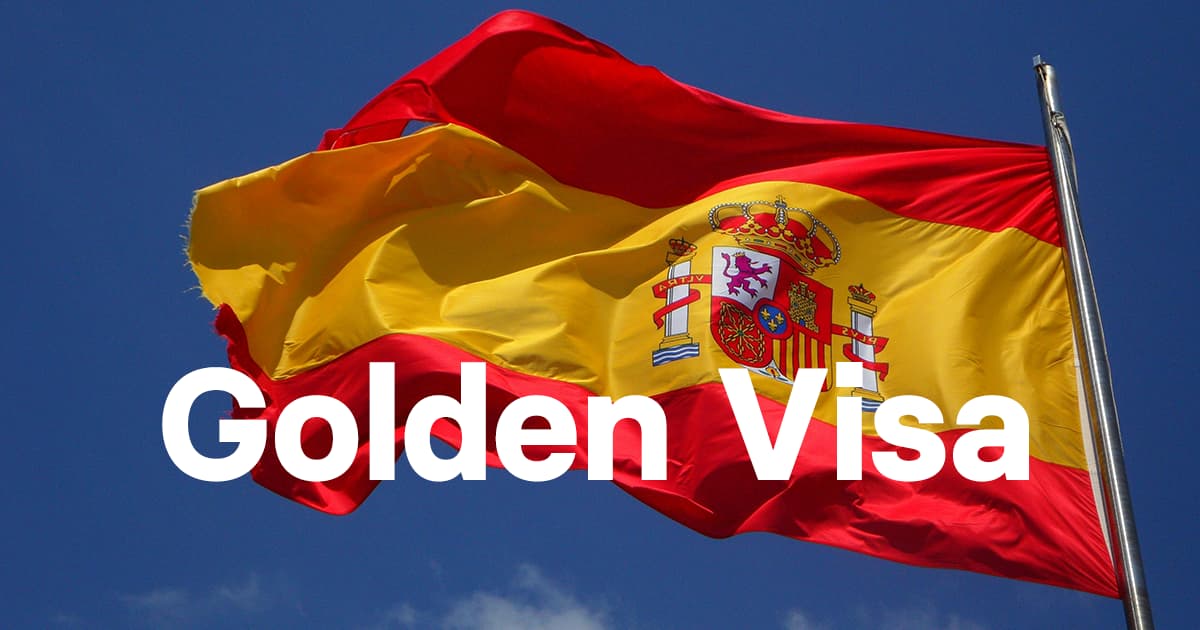
Spain’s Digital Nomad Visa in 2025: What You Need to Know
Last update: September 3, 2025
Reading time: 11.8 min
No Time to Read It All? Here’s the Quick Summary:
Spain’s Digital Nomad Visa, introduced in 2023, allows non-EU remote workers and freelancers to legally reside in Spain while working for foreign employers or clients. Applicants must demonstrate a minimum monthly income of approximately €2,763, possess a university degree or have at least three years of professional experience, and provide proof of a clean criminal record and private health insurance. The visa offers an initial validity of up to 12 months, extendable to five years, and includes tax benefits under the Beckham Law. Family members can also be included in the application.
Why Choose Spain as a Digital Nomad?
Sun, Lifestyle, Connectivity and Cost of Living
Spain offers one of the most attractive combinations for remote professionals: over 300 days of sunshine per year, vibrant cities, relaxed Mediterranean living, and modern infrastructure.
Lifestyle & Climate
From beach towns like Valencia and Málaga to cultural hubs like Barcelona and Madrid, Spain provides an excellent work-life balance. Outdoor cafés, walkable neighborhoods, and easy access to nature make daily life more enjoyable.
Digital Connectivity
Spain has widespread fiber-optic coverage, even in smaller cities and rural areas. Coworking spaces are plentiful, particularly in urban centers and along the coast, with hubs like WeWork, Impact Hub, and local alternatives catering to international workers.
Cost of Living
Compared to other Western European countries, Spain remains highly affordable. Cities like Valencia, Seville, and Granada offer:
- Rent from ~€700/month for a one-bedroom flat
- Low-cost public transport
- Inexpensive dining and groceries
For digital nomads earning foreign income, this means more savings and a higher quality of life — without sacrificing professional ambition.
Who Can Apply and What Are the Conditions?
Eligibility Criteria, Income Thresholds, and Acceptable Profiles
Spain’s Digital Nomad Visa is open to non-EU/EEA nationals who work remotely — either as employees of a foreign company or as self-employed professionals serving international clients.
Eligible Profiles
You can apply if you are:
- A remote employee with a valid contract from a non-Spanish company.
- A freelancer or contractor with foreign clients (up to 20% of your income may come from Spain).
- A digital entrepreneur managing a business that operates outside Spain.
Family members (spouse/partner and children) can also apply for dependent visas under the same scheme.
Income Requirements
Applicants must prove a minimum monthly income of ~€2,368 (200% of Spain’s minimum wage in 2025). This can be shown through:
- Employment contracts
- Invoices and bank statements (for freelancers)
- Tax returns or official income certificates
Additional income is required if bringing dependents (e.g., 75% extra for a spouse, 25% for each child).
Other Conditions
You must also provide:
- Proof of 3 months of professional activity or contract history
- A clean criminal record from your country of residence (last 5 years)
- Private health insurance valid in Spain with no co-pay or waiting period
- A university degree or 3+ years of relevant work experience
Spain’s Digital Nomad Visa is designed for stability and seriousness — not short-term tourism. Meeting these conditions is key to approval.
Required Documents and Application Process
Step-by-Step Guide + Where and How to Apply
Applying for Spain’s Digital Nomad Visa is relatively straightforward — if your documents are well prepared and meet the legal requirements under the Startup Law (Ley de Startups).
Required Documents
Here’s what you’ll need to submit with your application:
- Valid passport (with at least 1 year before expiration)
- Employment contract (for remote workers) or client agreements/invoices (for freelancers)
- Proof of income: Recent payslips, invoices, or bank statements showing at least €2,368/month
- Certificate of clean criminal record from the last 5 years, translated and apostilled
- Proof of private health insurance covering Spain, with no co-pay or waiting period
- University diploma or evidence of 3+ years of professional experience
- NIE number (if applying from within Spain) or included in the visa process (if applying abroad)
Where and How to Apply
You can submit your application in two ways:
- From Abroad
- Apply at the Spanish consulate in your country of residence
- You’ll receive a 1-year visa if approved
- Once in Spain, apply for the TIE residence card within 30 days
- From Spain (Highly Recommended)
- If already in Spain on a legal stay (tourist visa or other), apply through the UGE (Unidad de Grandes Empresas)
- The application can be submitted online via a legal representative (gestor or lawyer)
- If approved, you get a 3-year residence permit directly
- Processing time is up to 20 working days, and silence means approval (“aprobación por silencio administrativo”)
Don’t Forget:
- Some documents (like criminal records and diplomas) must be apostilled and translated into Spanish by a sworn translator (traductor jurado).
- After approval, you must visit a police station in Spain to register fingerprints and obtain your TIE (Foreigner Identity Card).
Getting it right the first time saves months of delay — and Spain’s fast-track UGE system makes this one of Europe’s most accessible digital nomad visas.
Duration, Renewal, and Family Inclusion
How Long You Can Stay and Bring Loved Ones
Spain’s Digital Nomad Visa isn’t just for short stays — it offers a clear path to long-term legal residence and allows you to bring your family with you.
Initial Duration
- From abroad: The visa grants a 1-year residence permit.
- From Spain via UGE: You can obtain a 3-year permit directly.
In both cases, you must apply for your TIE (Tarjeta de Identidad de Extranjero) within 30 days of arrival or approval.
Renewal
- The visa is renewable for 2 years at a time, up to a maximum of 5 years.
- To renew, you must continue to meet the original eligibility requirements:
- Proof of remote work with foreign clients/employer
- Private health insurance
- Minimum income (~€2,368/month in 2025)
- Clean criminal record
After 5 continuous years, you may qualify for long-term EU residency in Spain.
Bringing Family Members
You can include your spouse or registered partner, children, and dependent relatives in your application.
Requirements:
- Additional income of ~€884/month for the first dependent and ~€295/month for each additional member
- Private health insurance for all accompanying relatives
- Proof of relationship (marriage or birth certificates, translated and apostilled)
Family members receive residence permits aligned with your visa’s validity, allowing them to study or work in Spain (with proper authorization, if needed).
Spain’s digital nomad visa isn’t just a solo journey — it’s a real opportunity for remote-working families to settle under the sun, legally and securely.
Tax Advantages and the Beckham Law
Flat Tax Rate and Key Conditions to Qualify
Spain’s Digital Nomad Visa isn’t just about lifestyle — it also offers significant tax benefits, thanks to the Beckham Law (Régimen de Impatriados).
What Is the Beckham Law?
Originally designed to attract foreign talent, this tax regime allows eligible newcomers to pay a flat 24% income tax on Spanish-sourced income up to €600,000 per year. Income earned abroad is generally exempt, making it ideal for remote workers paid by foreign companies.
Who Can Qualify?
To benefit from the Beckham Law, you must:
- Not have been a tax resident in Spain for the past 5 years
- Apply within 6 months of registering with Spanish social security or receiving your NIE
- Work remotely for a non-Spanish employer or manage a qualified startup in Spain
This flat-rate regime applies for up to 6 years (year of arrival + 5), and replaces Spain’s progressive income tax system (ranging from 19% to 47%).
What’s Not Covered?
- Income from Spanish clients or local business activity is not eligible
- You still pay standard rates on certain types of capital gains or investments
- You must file annually and may need assistance from a tax advisor
A Competitive Edge in Europe
Compared to other EU countries offering digital nomad visas (like Portugal or Italy), Spain’s Beckham Law gives mid-to-high earners a clear tax advantage, especially when combined with its lower cost of living in cities like Valencia or Málaga.
This fiscal incentive makes Spain not just a sunny destination — but also a smart financial choice for long-term remote workers.
Best Cities in Spain for Digital Nomads
Barcelona, Valencia, Malaga, Madrid & More
Spain offers an ideal environment for remote workers, but some cities stand out for their unique combination of infrastructure, lifestyle, and international communities.
Barcelona
A cosmopolitan hotspot with a thriving tech scene, international meetups, and vibrant nightlife.
Pros: Fast internet, coworking spaces, beach access, active expat life.
Cons: Higher rent and cost of living.
Valencia
A digital nomad favorite for its balance of affordability and quality of life.
Pros: Lower rents, sunny weather, beach + city lifestyle, bike-friendly.
Cons: Smaller job market for tech and startups.
Málaga
Emerging as Spain’s “Silicon Valley South” with strong public investment in innovation.
Pros: Warm climate year-round, growing coworking culture, international airport.
Cons: Fewer direct international flights than Madrid or Barcelona.
Madrid
The capital offers professional opportunities, excellent transport, and cultural richness.
Pros: Central location, metro network, diverse neighborhoods, international schools.
Cons: No beach, more traditional business culture.
Las Palmas (Gran Canaria)
Tropical weather, laid-back lifestyle, and a strong digital nomad community.
Pros: Tax incentives, lower cost of living, coworking hubs.
Cons: More remote, limited access to mainland Spain.
Each of these cities provides strong internet access, vibrant communities, and coworking infrastructure, making them attractive options depending on your budget, climate preference, and work needs.
Digital Nomad Visa vs Other Spanish Work Visas
Freelancer Visa, Entrepreneur Visa, or Local Work Contract?
Spain offers several visa options for foreign professionals, but understanding their differences is essential to choosing the right one.
Digital Nomad Visa (Startup Law)
For: Remote workers employed by or offering services to foreign companies.
Key Perks:
- Apply from inside or outside Spain.
- Fast-track process via the UGE (within ~20 days).
- Access to Beckham Tax Regime (24% flat rate up to €600,000/year).
- Valid up to 5 years.
- Legal residence for family members.
Limitations:
- Cannot work for Spanish clients (unless under 20% of income).
- Minimum income required: ~€2,368/month (2025 estimate).
Freelancer Visa (Autónomo)
For: Self-employed professionals working for Spanish or foreign clients.
Key Points:
- Must register with Spanish tax authorities and pay into local social security.
- Full access to the Spanish market.
- More complex setup with higher administrative and tax burdens.
Limitations:
- No fast-track; requires business plan and local registration.
- Higher monthly social security contributions (~€300+).
Entrepreneur Visa (Ley de Emprendedores)
For: Founders launching innovative businesses in Spain.
Key Features:
- Requires approval from a Spanish innovation body (ENISA).
- Valid for 1–2 years, renewable.
- Strong fit for tech startups or investors.
Limitations:
- Must prove innovation and economic impact.
- Involves a structured business plan and review.
Local Work Visa (With Spanish Employer)
For: Foreigners with a job offer from a Spanish company.
Conditions:
- Requires labor market test (to show no suitable local candidate).
- Application handled by employer.
Limitations:
- Cannot work remotely for foreign companies.
- More restrictive and time-consuming to obtain.
In short:
- Choose the Digital Nomad Visa if you work remotely for foreign clients and want tax advantages.
- Pick the Freelancer Visa if you want to invoice Spanish clients.
- Opt for the Entrepreneur Visa if you’re launching a startup in Spain.
- Apply for the Local Work Visa only if a Spanish company offers you a direct contract.
Final Advice and Access to the Full Expat Series
Next Steps and Links to Our Full “Working in Spain” Guides
If you’re considering Spain as your next base for remote work, the Digital Nomad Visa offers a compelling pathway — combining legal residence, favorable tax treatment, and an unbeatable Mediterranean lifestyle. But success depends on preparation:
✔ Gather the required documents early
✔ Make sure your income and activity meet the criteria
✔ Understand your tax obligations and legal options
✔ Consider your long-term goals (permanent residence, family inclusion, etc.)
Explore the Complete “Working in Spain” Series
This article is part of our expert content hub designed to help you succeed in Spain’s job market:
-
Working in Spain: A Complete Guide for Expats (2025) – Legal basics, work culture, NIE, taxes, and local adaptation
-
Spain Work Visas: Types, Requirements and How to Apply (2025) – Compare all permits, eligibility, and application steps
-
Spain’s Digital Nomad Visa in 2025: What You Need to Know – For remote professionals earning from abroad
-
Top Jobs in Spain for Foreigners in 2025 – Most in-demand roles, salaries, and where to find them
Each guide dives deeper into legal procedures, visa strategies, salary benchmarks, and real-life tips to help you live and work in Spain with confidence.







